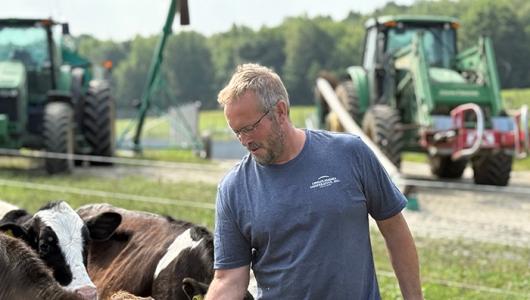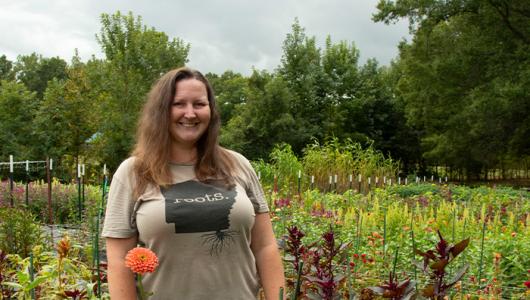The Blue Lake Rancheria Tribe, near the town of Arcata in northern California, is a steadfast steward of the land. Tribal members are proud leaders in environmental stewardship and work daily with an eye on restoring their land and the adjacent Powers Creek and Mad River to a healthy and sustainable ecosystem.
“You need to protect the land you own, and we strive to be good stewards of this land to pass it on to future generations” said Tribal Administrator and Councilmember Jason Ramos.
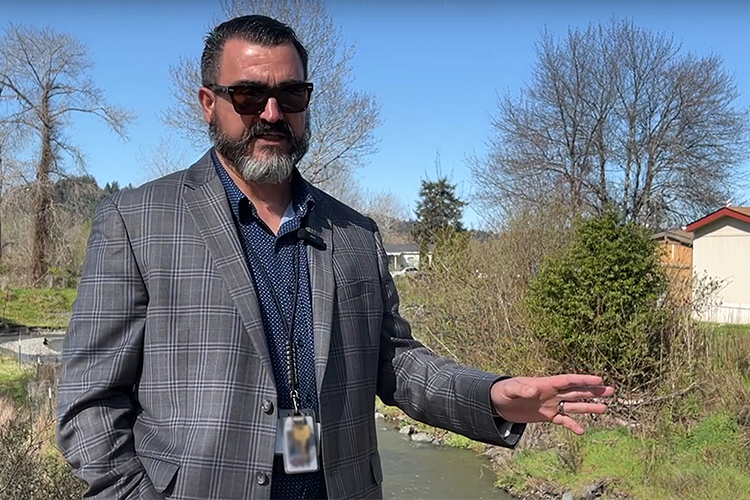
The Tribe is working with USDA’s Natural Resources Conservation Service (NRCS) using Inflation Reduction Act funding to continue their conservation efforts.
Funding from the Inflation Reduction Act through the Environmental Quality Incentives Program (EQIP) supports these conservation projects, which helps the fish and the environment, while also helping the Tribe exercise sovereignty over essential Tribal Cultural Resources.
“NRCS funds really helped to further our goals to protect the habitat on our lands,” Jason said.
The Tribe counts about 50 members whose sovereign Nation encompasses 100 acres of trust land lying about nine miles inland from the Pacific Ocean’s coastline.
The Tribe’s stewardship goals are in good hands with Jacob Pounds, their Environmental Specialist and Tribal Historic Preservation Officer. Born and raised in rural Kansas, Jacob joined the Rancheria in 2009 to help the Tribe meet its goals to protect the land, species, and people who call this beautiful landscape home.
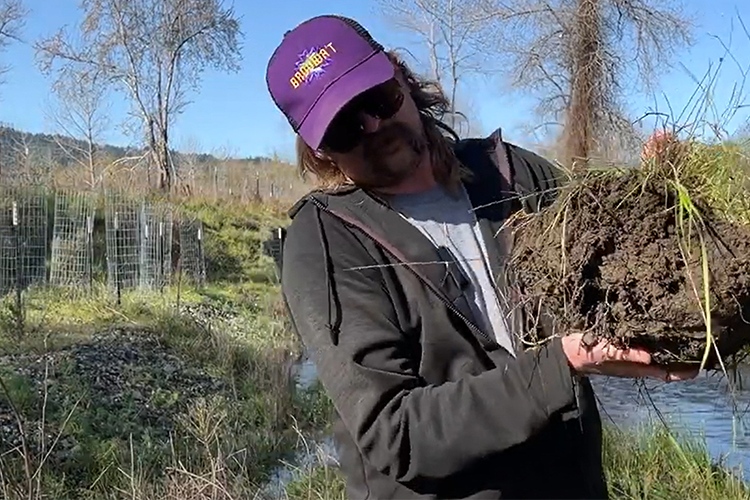
“We wanted to enhance the habitat to support Chinook Salmon, Coho Salmon, and Steelhead Trout on Baduwa’t (Mad River),” said Jacob. “We used NRCS’ EQIP to create an engineered channel design to help the fish spawn and rear. Additionally, the project helped alleviate upstream flooding in the City of Blue Lake and create complex fish and wildlife habitat by re-vegetating the streambanks with native trees and shrubs.”
Jacob credits his strong working relationship with NRCS to Tribal Conservation Planner Erin Taylor for helping them achieve success with these projects. The two have worked together for years, matching available NRCS funding opportunities with tribal goals on the land.
“Funding and expertise to get these projects implemented was sorely needed, and working in partnership with Erin Taylor of NRCS, and other individuals and organizations helped bridge that gap,” said Jacob.
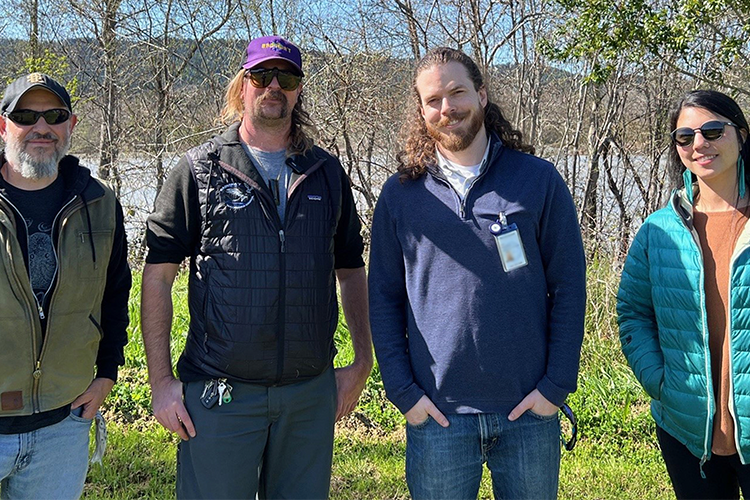
A priority of the Tribe’s stewardship goals is protecting and restoring fish habitat since salmon are a traditional part of the tribal diet. The assistance from NRCS to implement these habitat restoration projects is one step to help the Tribe rebalance environmental conditions for fish. The goal is one day to have a harvestable surplus to support a tribal fishery.
The native plant species selected to re-vegetate these restoration areas will also help reinvigorate traditional cultural practices. These species include Oregon Ash (used for acorn mush paddles and canoe oars), Big-Leaf Maple (used for skirt making), and California Hazelnut (an important food crop and source of fibers for basket weaving. As they grow, they will provide shade and habitat to support healthy fish populations. Along with the fish and plant species, local deer and elk populations, mink, foxes, and skunks will enjoy quality habitat on the Rancheria’s lands.
“It has been an extremely rewarding experience for me as an NRCS Tribal Conservation Planner to have the opportunity to collaborate with Blue Lake Rancheria,” said Erin. “I look forward to continuing our partnership and applying additional conservation practices to assist meeting the Tribe’s long-term food sovereignty goals and objectives.”
Jonathan Groveman is a public affairs specialist for NRCS in California.

